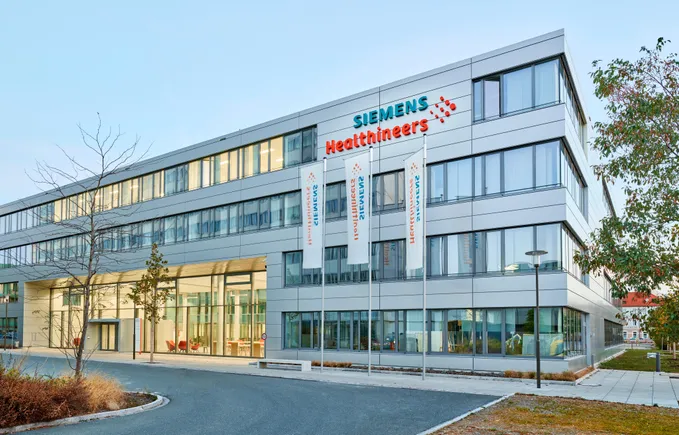Dive Brief:
- Siemens Healthineers has agreed to pay more than 200 million euros ($223 million) to buy part of Novartis’ radiopharmaceutical business, the Financial Times reported Saturday.
- The deal, which a Siemens spokesperson confirmed via email, includes the manufacturing and distribution network of Advanced Accelerator Applications (AAA) Molecular Imaging. Novartis acquired AAA for $3.9 billion in 2017 and will retain the company’s therapeutics business.
- Buying the diagnostic arm of AAA will expand Siemens’ positron emission tomography (PET) radiopharmaceuticals unit in Europe. Siemens CEO Bernd Montag said on an earnings call in July that the Petnet unit, which is currently focused on the U.S., is a mid-triple-digit millions business.
Dive Insight:
Novartis and other drugmakers have invested in radiopharmaceuticals to treat cancer. The programs require a supply of radioactive compounds that must be produced close to patients because they have short half-lives. The compounds are used in medicines and in diagnostics that identify patients eligible for radioligand therapy, a targeted cancer treatment, as well as in PET imaging of cancer and neurodegenerative diseases.
Siemens’ Petnet business has benefited from rising demand for radiopharmaceuticals. The company has 47 cyclotron-powered radiopharmacies, a figure that a Siemens spokesperson said makes it the largest supplier of PET radiopharmaceuticals.
The network is focused on the U.S., although Petnet also operates in the U.K. and Paris. Buying the Novartis assets will “add 14 manufacturing sites across France, Spain, Portugal, Italy and Germany as well as selected assets in Switzerland,” the Siemens spokesperson said. Expanding the network will mean Siemens is close enough to more patients to supply short-lived radioactive compounds.
Montag discussed plans to invest in the Petnet network on the earnings call in July, telling investors that establishing new production facilities increases patient access to PET biomarkers and supports the development of new biomarkers. Making new biomarkers available “will increase access to the latest individualized care,” the CEO said.
Advances in the treatment of Alzheimer’s disease are increasing interest in the use of PET scans outside of oncology. The imaging technique can measure the build up of abnormal amyloid protein in the brain. The protein is a hallmark of Alzheimer’s and the target of new drugs such as Eisai and Biogen’s Leqembi, giving PET scans a role in diagnosing the disease and monitoring the effect of the treatments.

